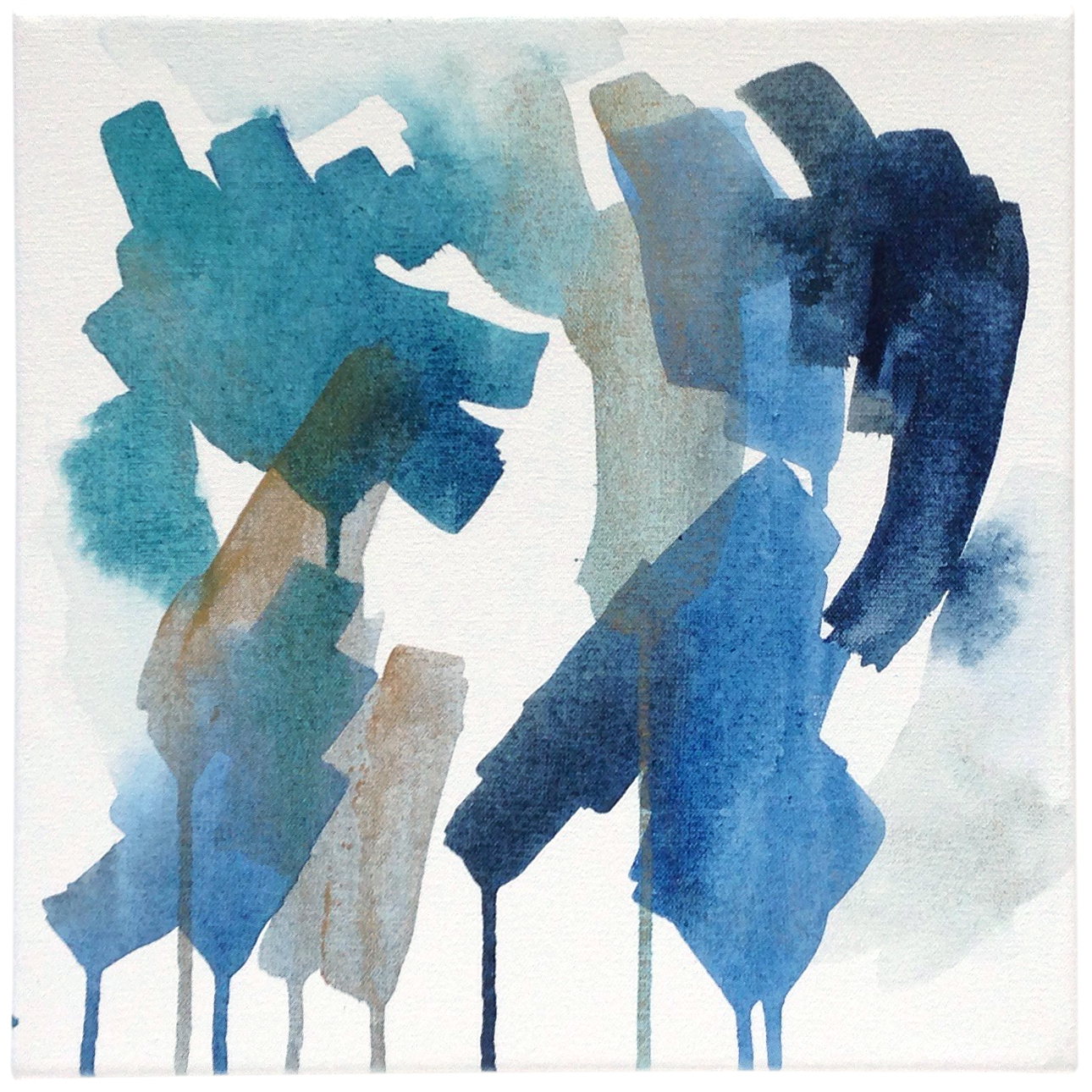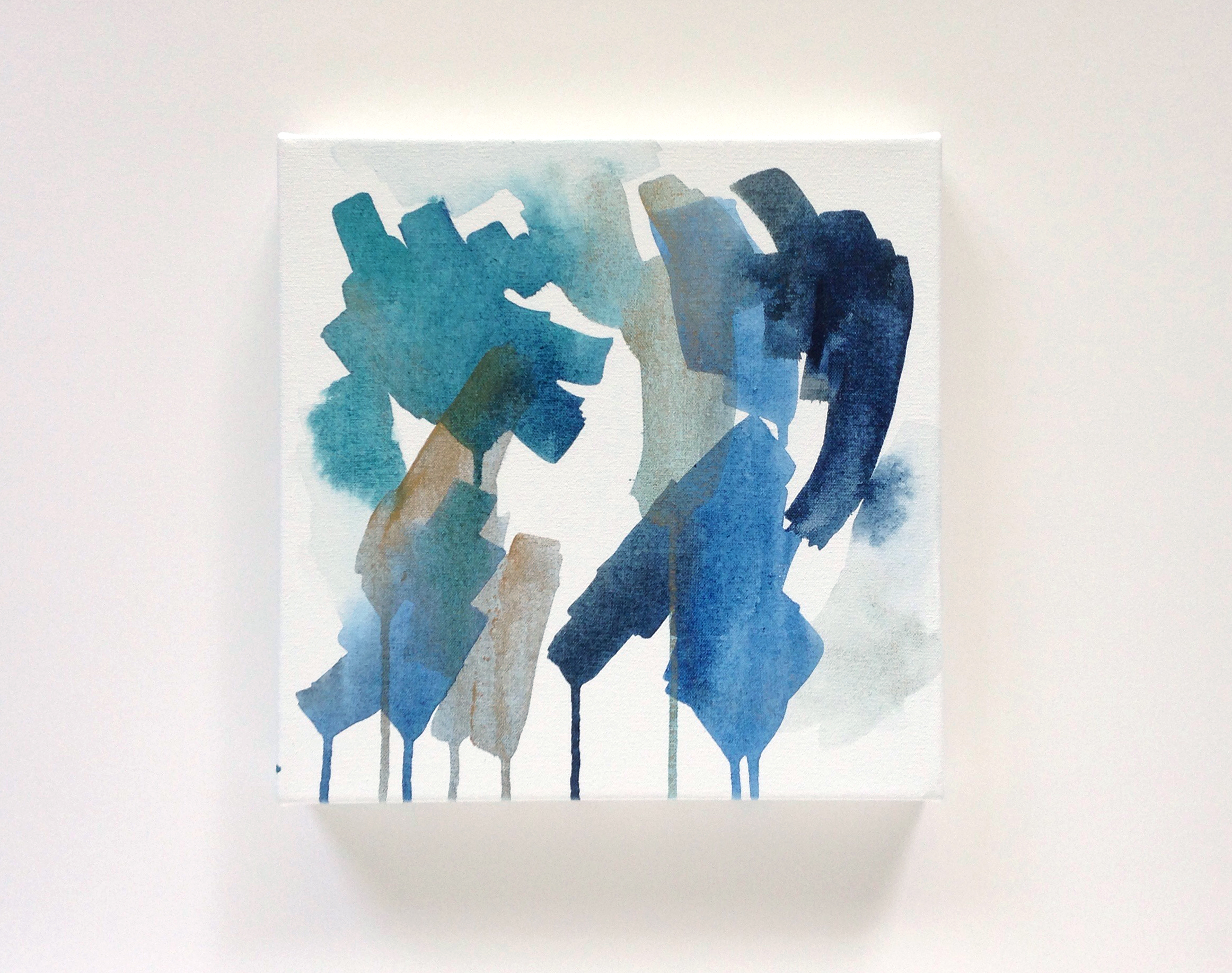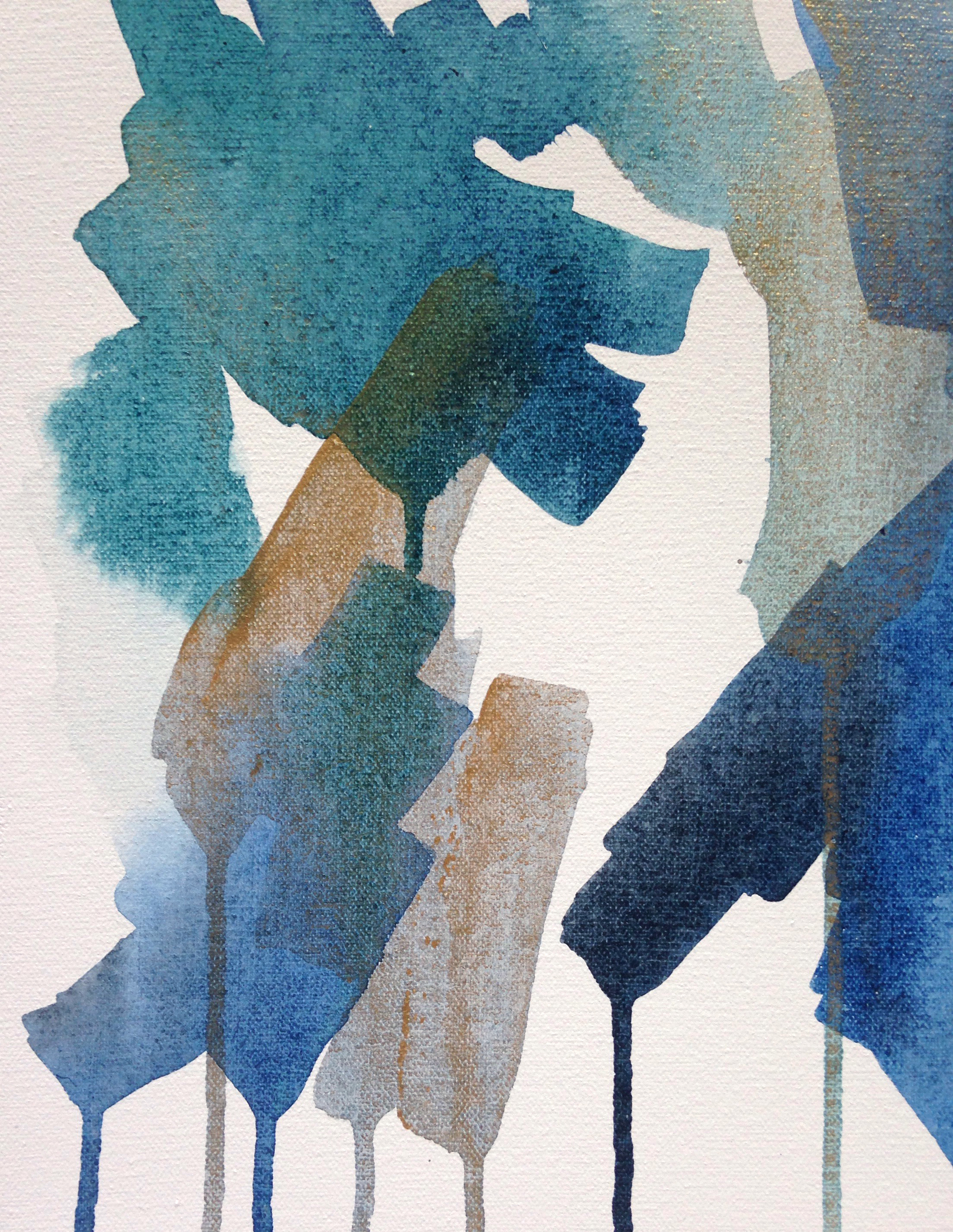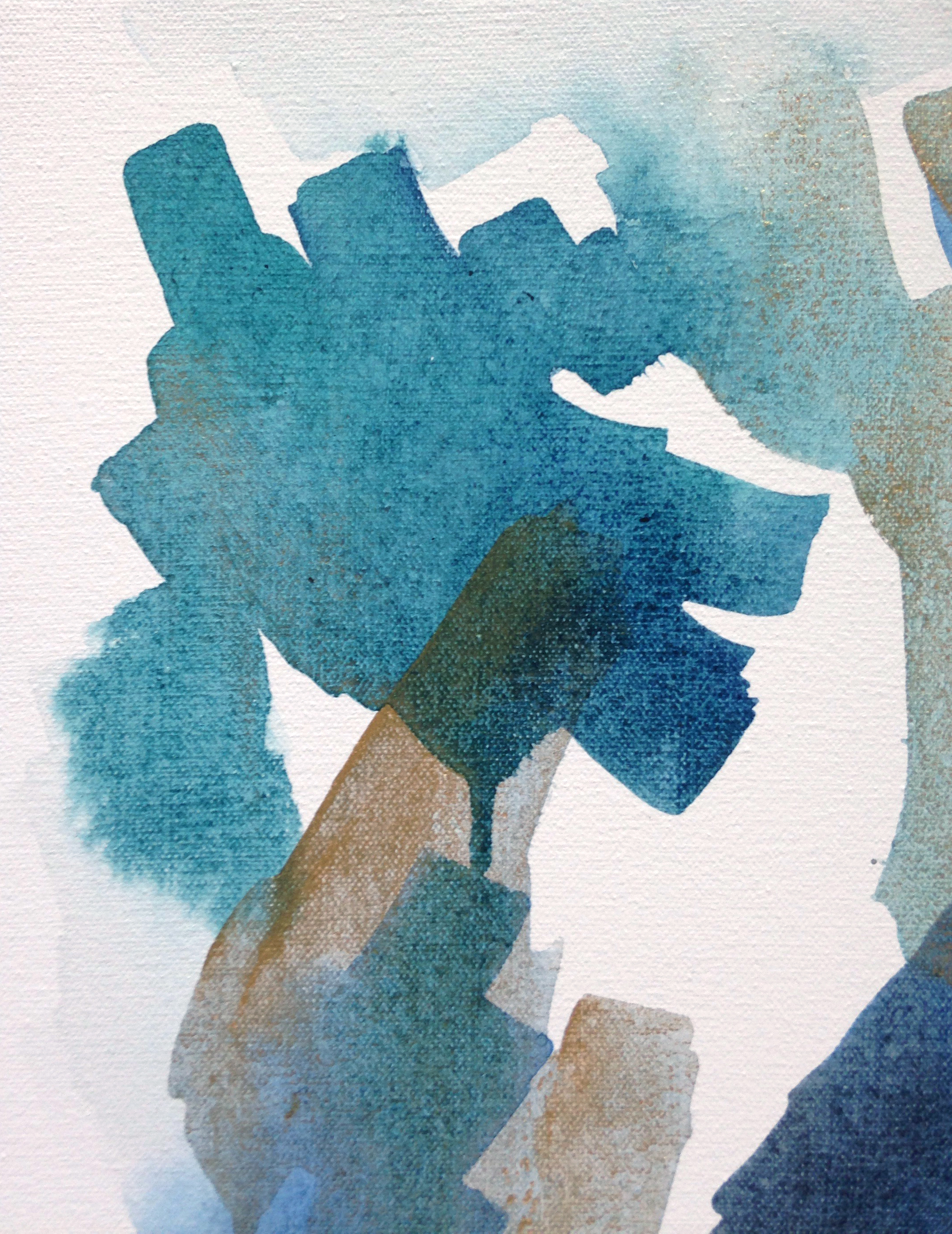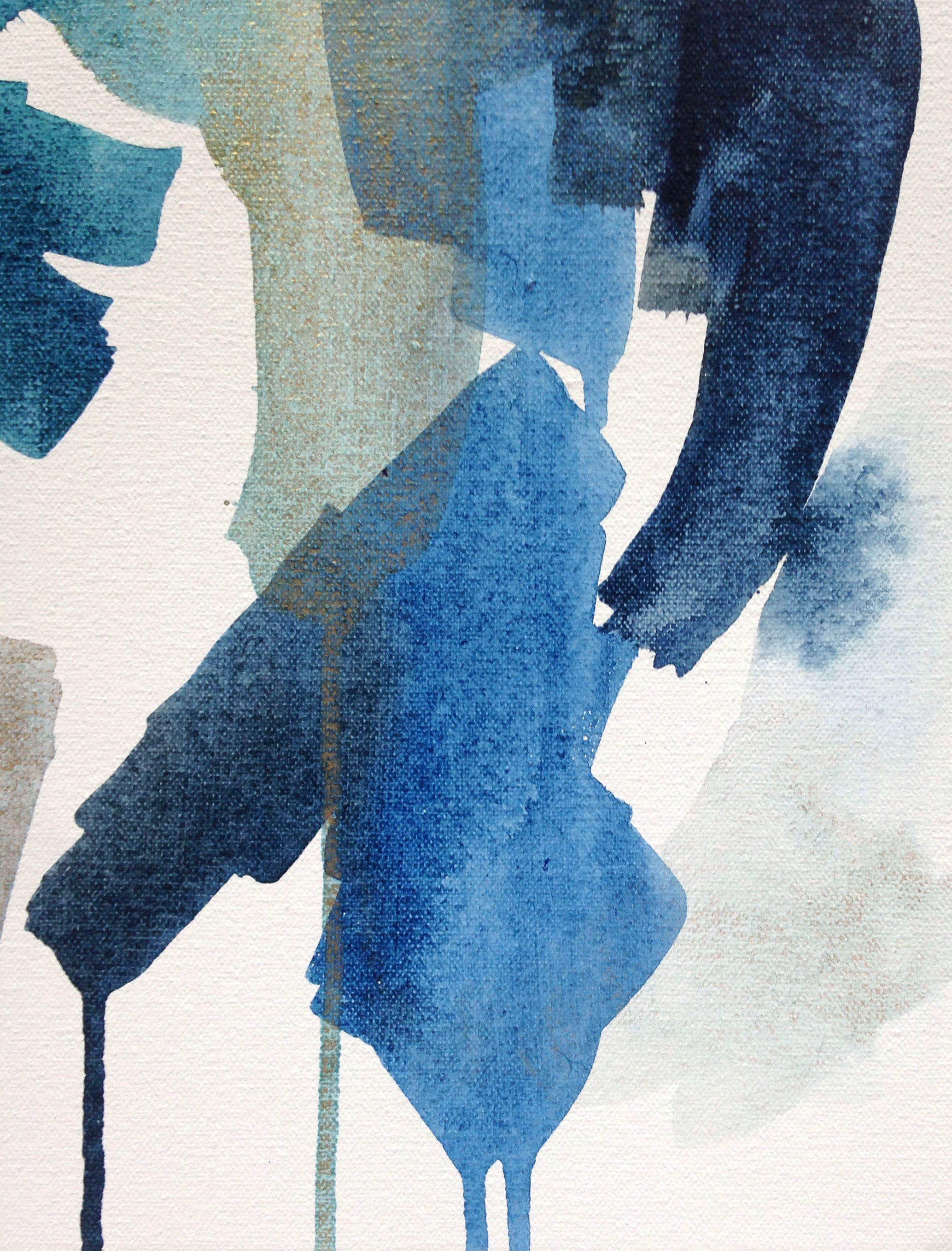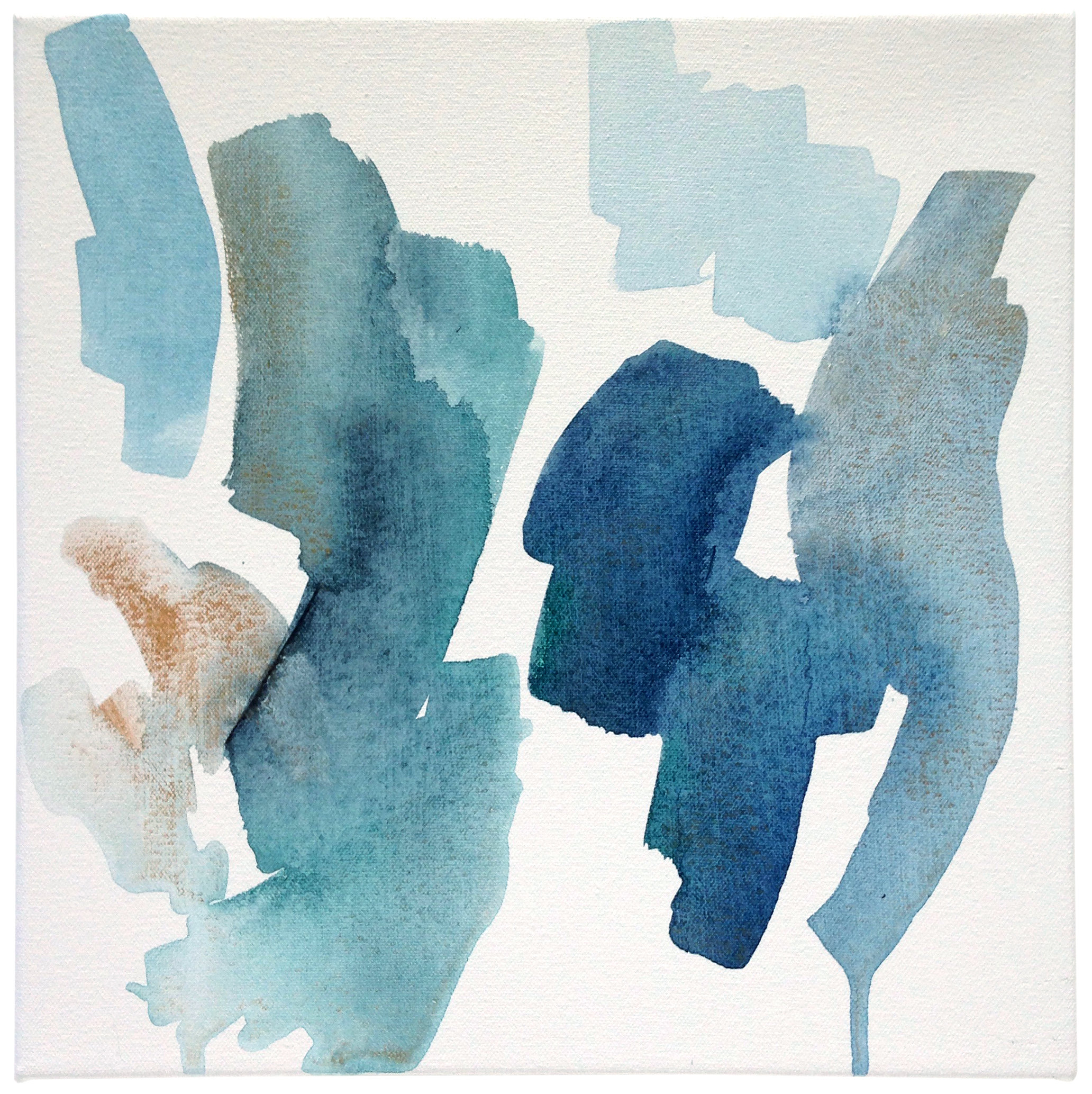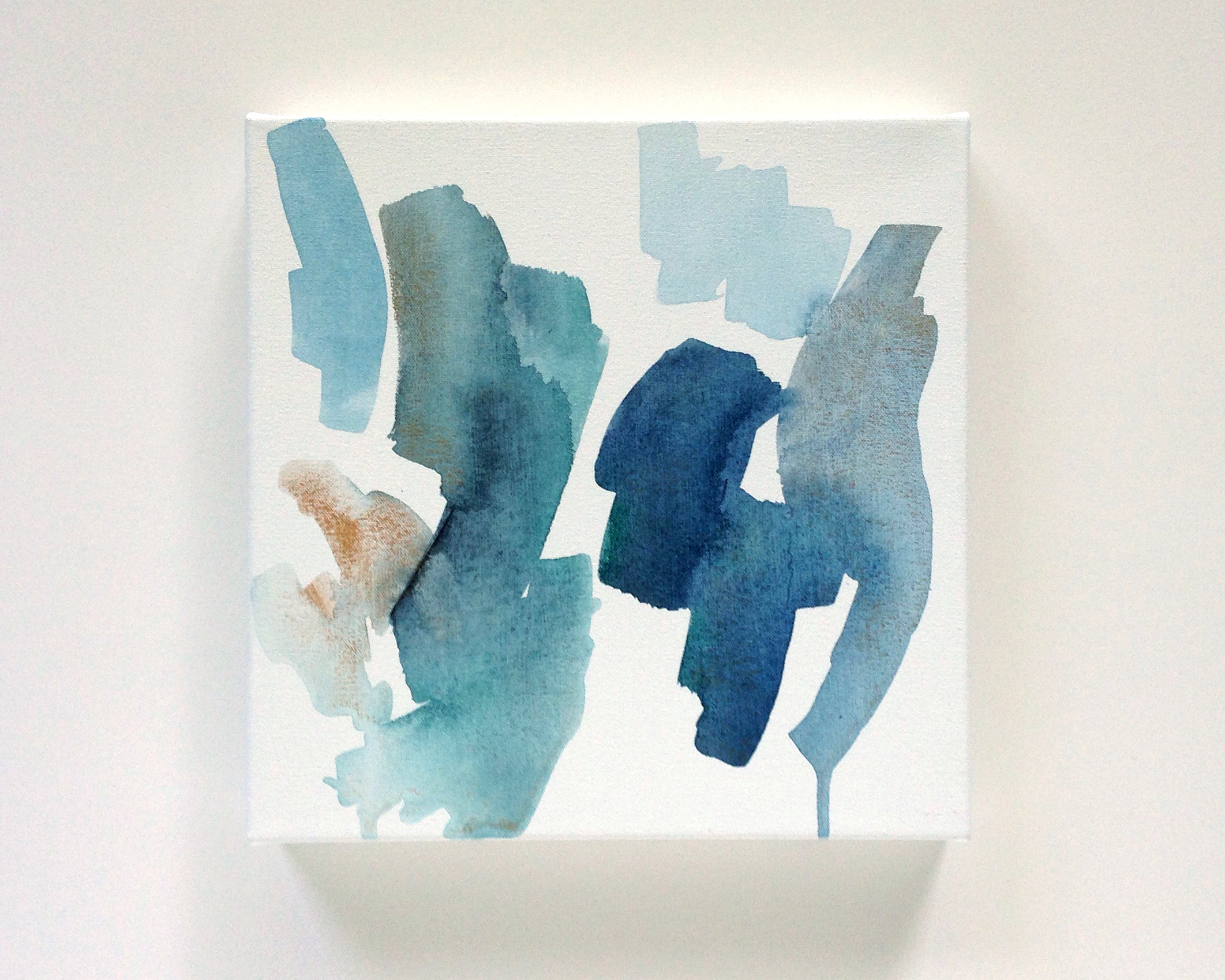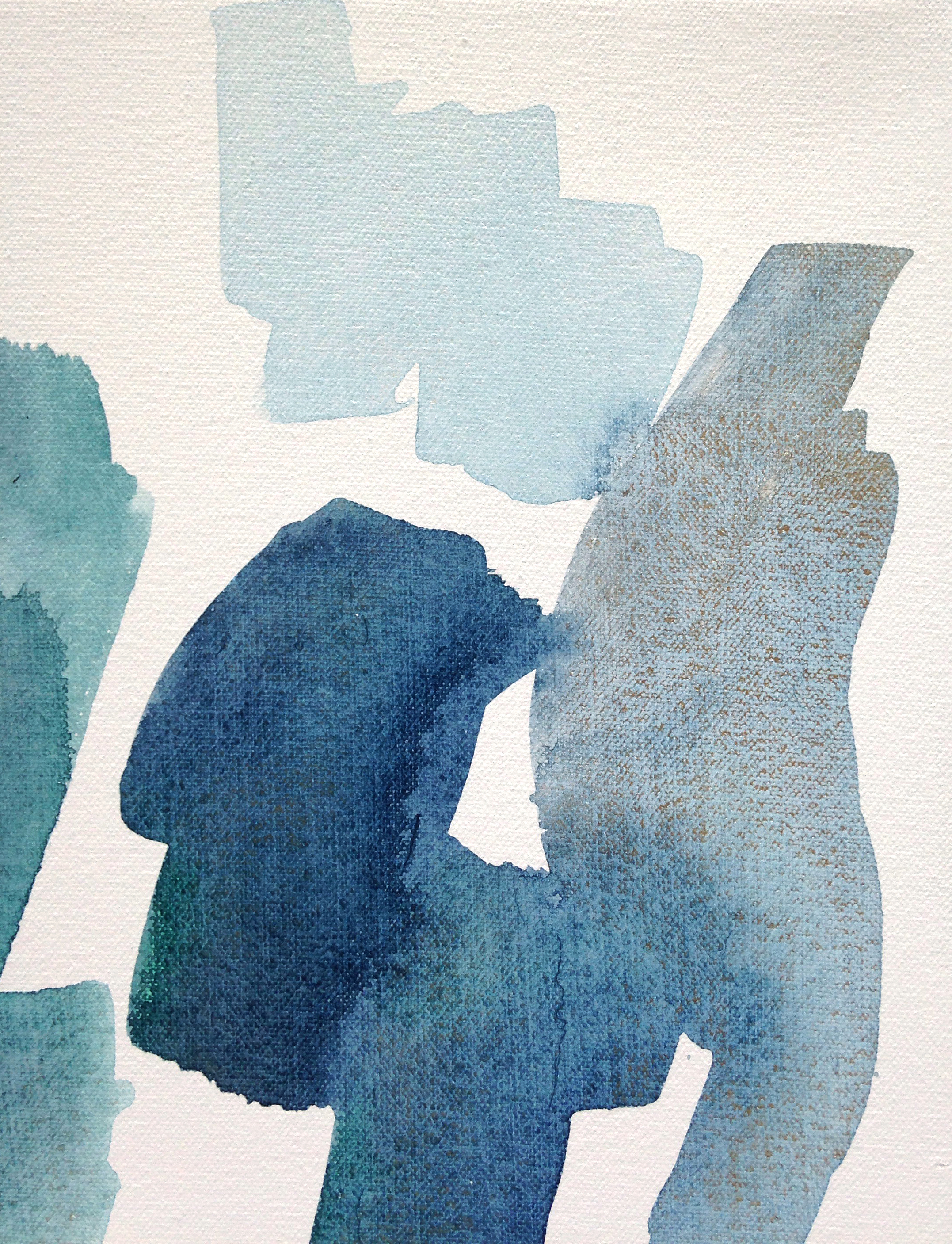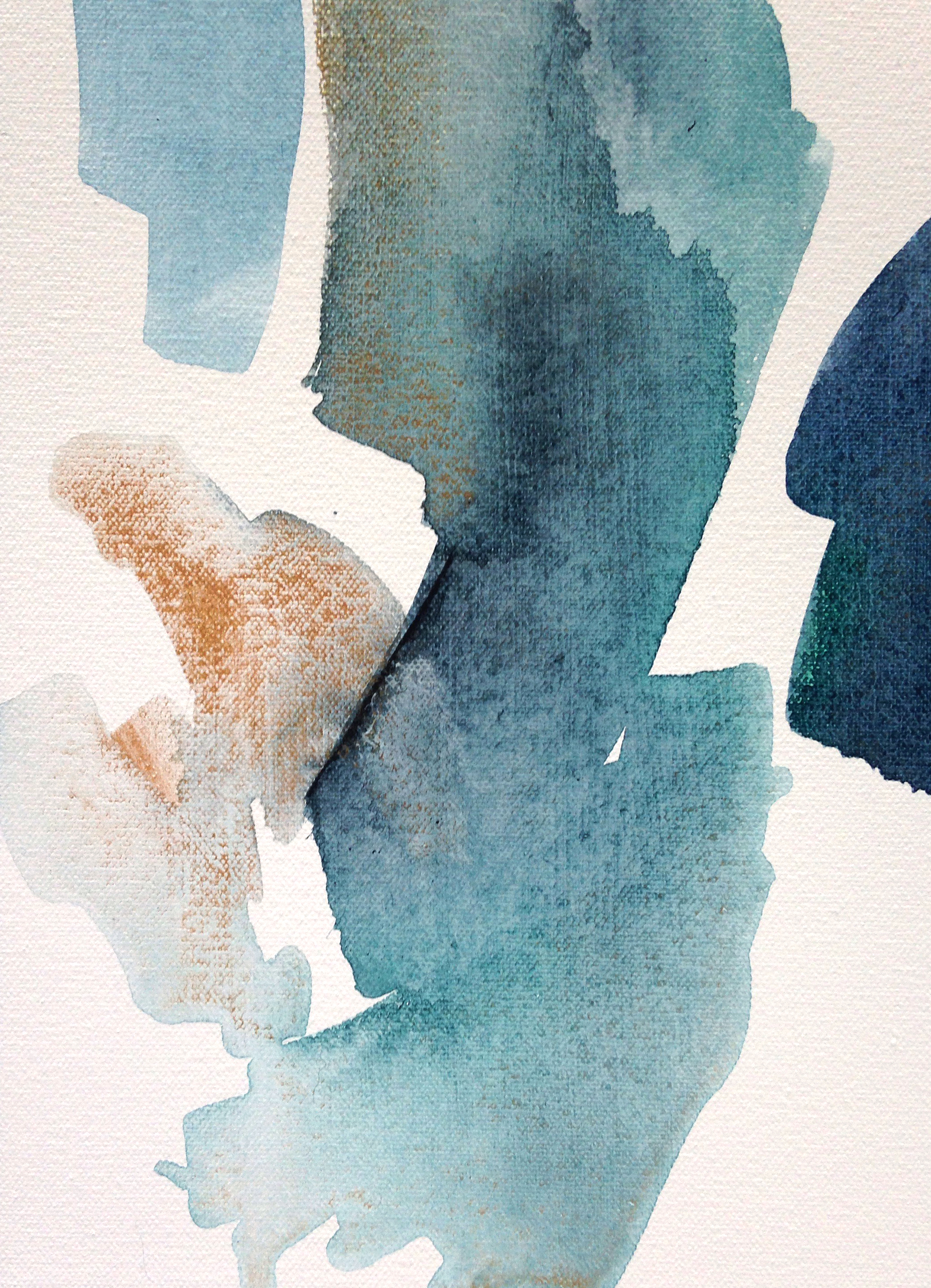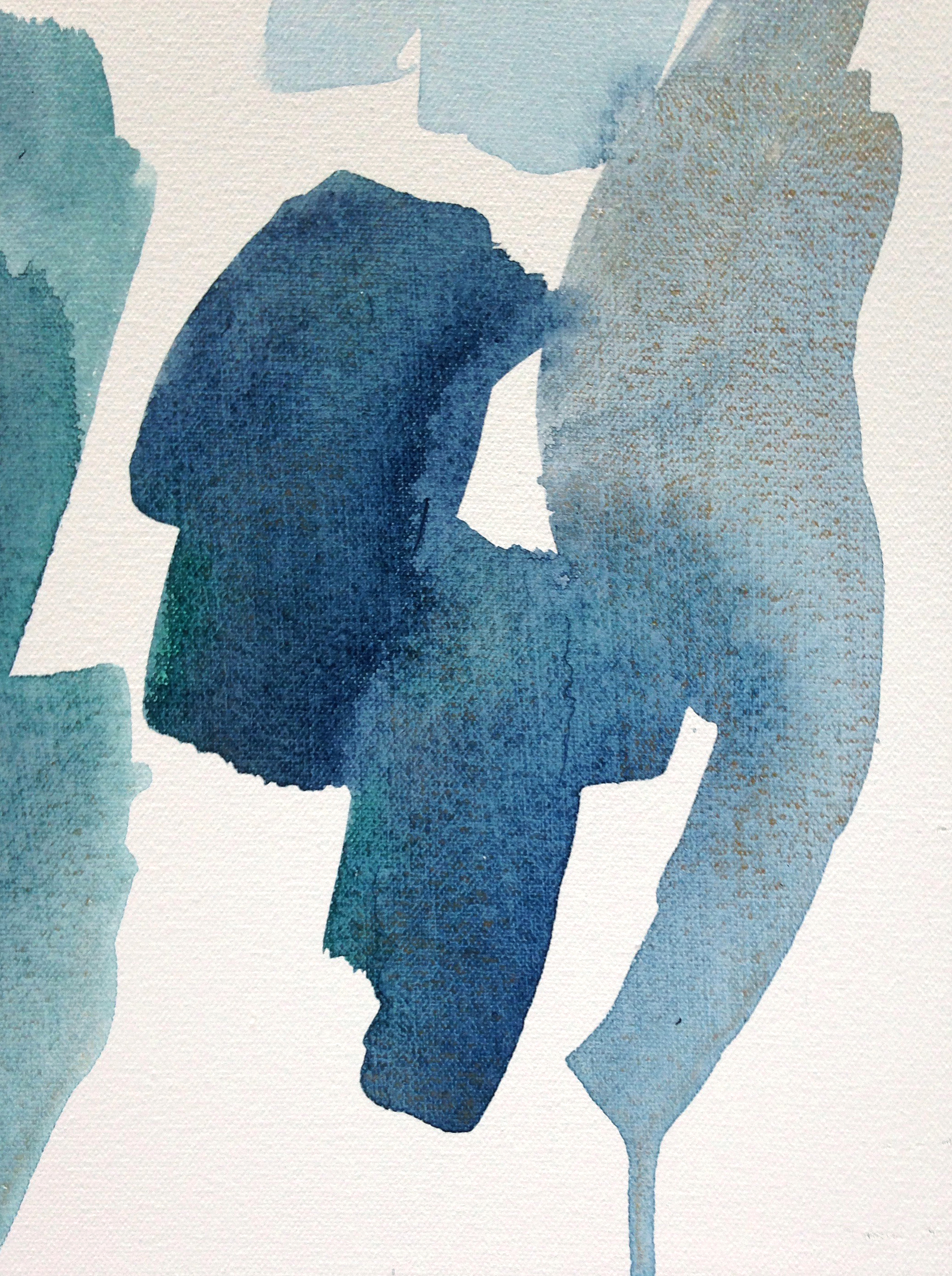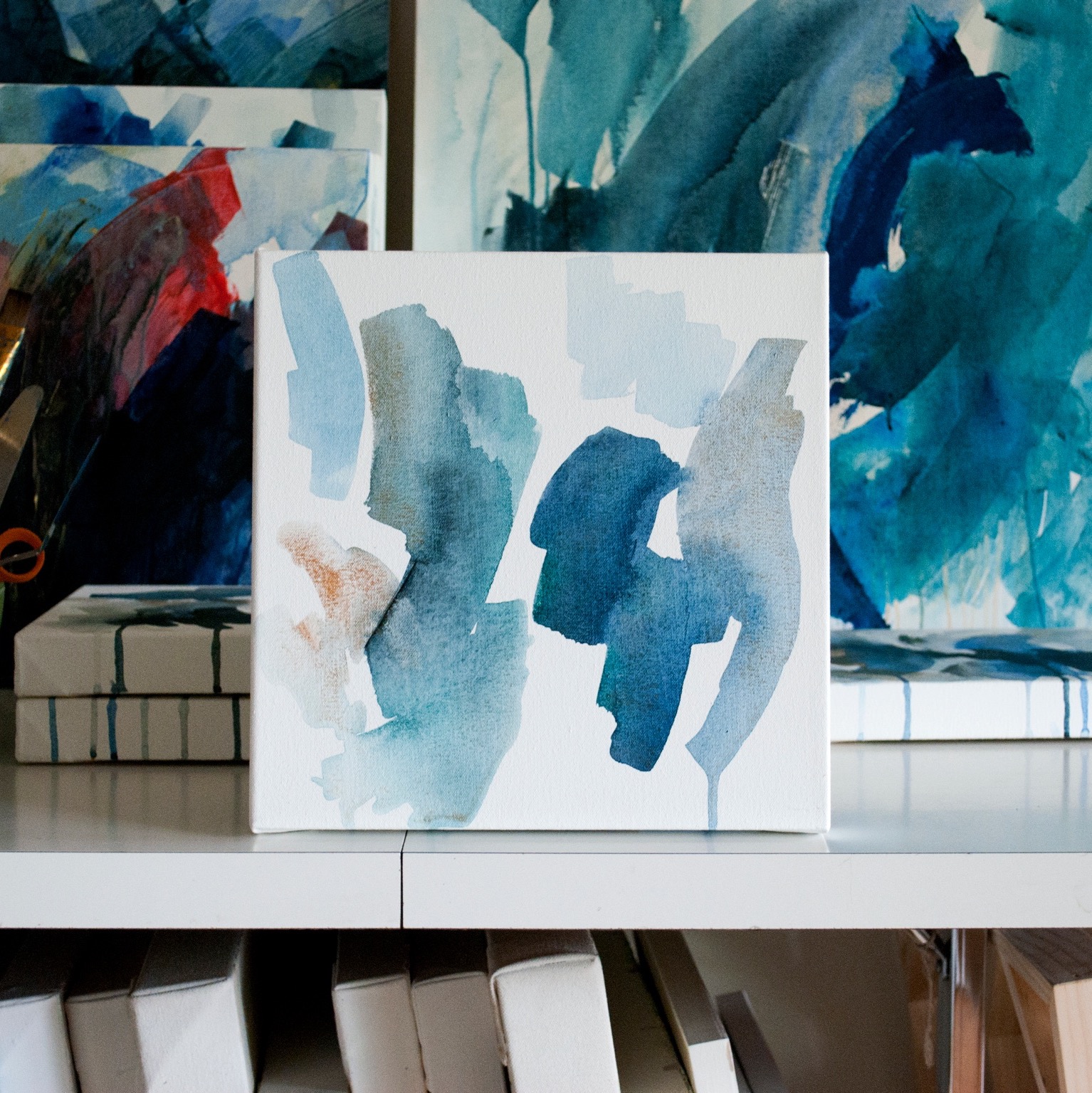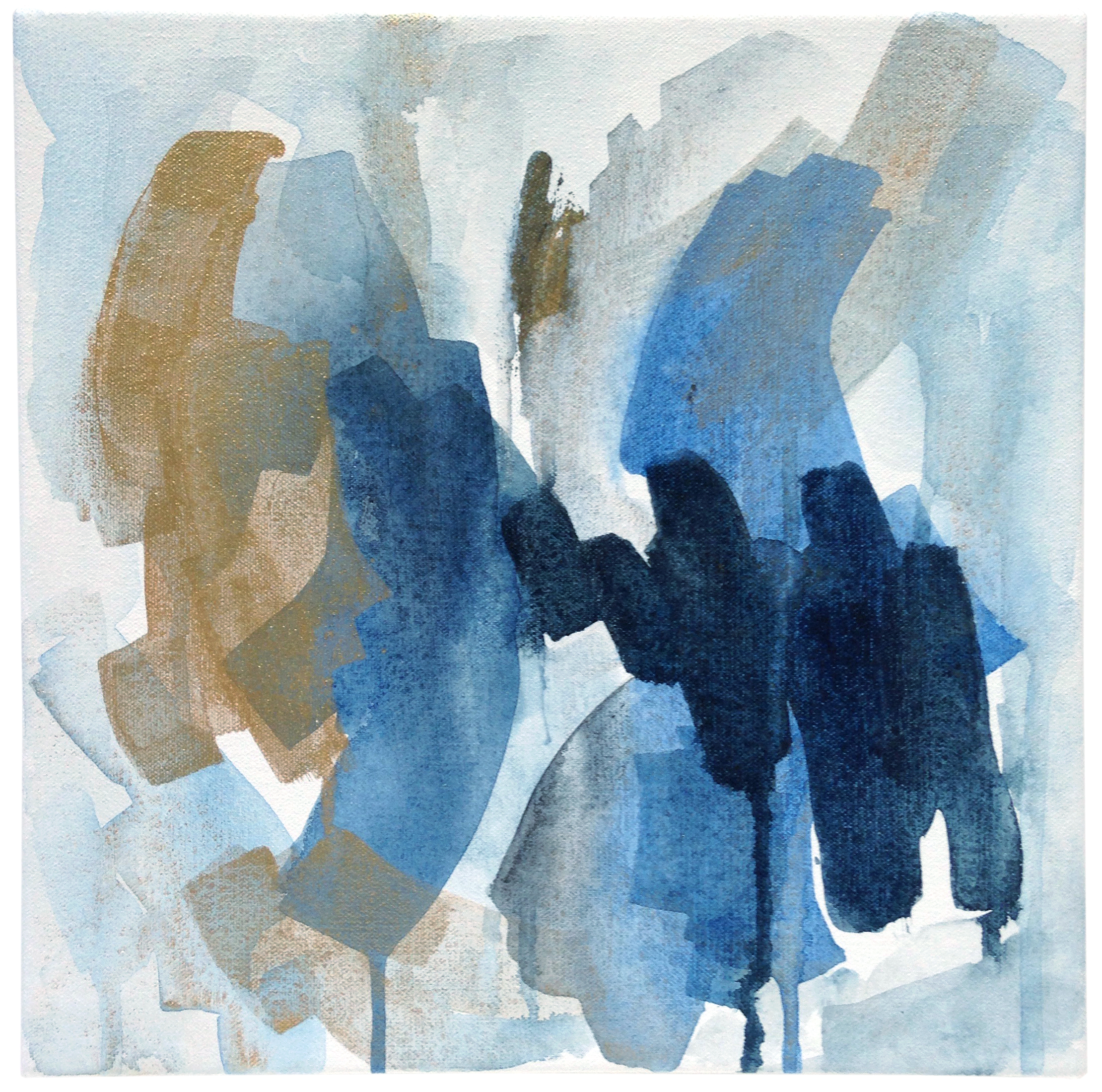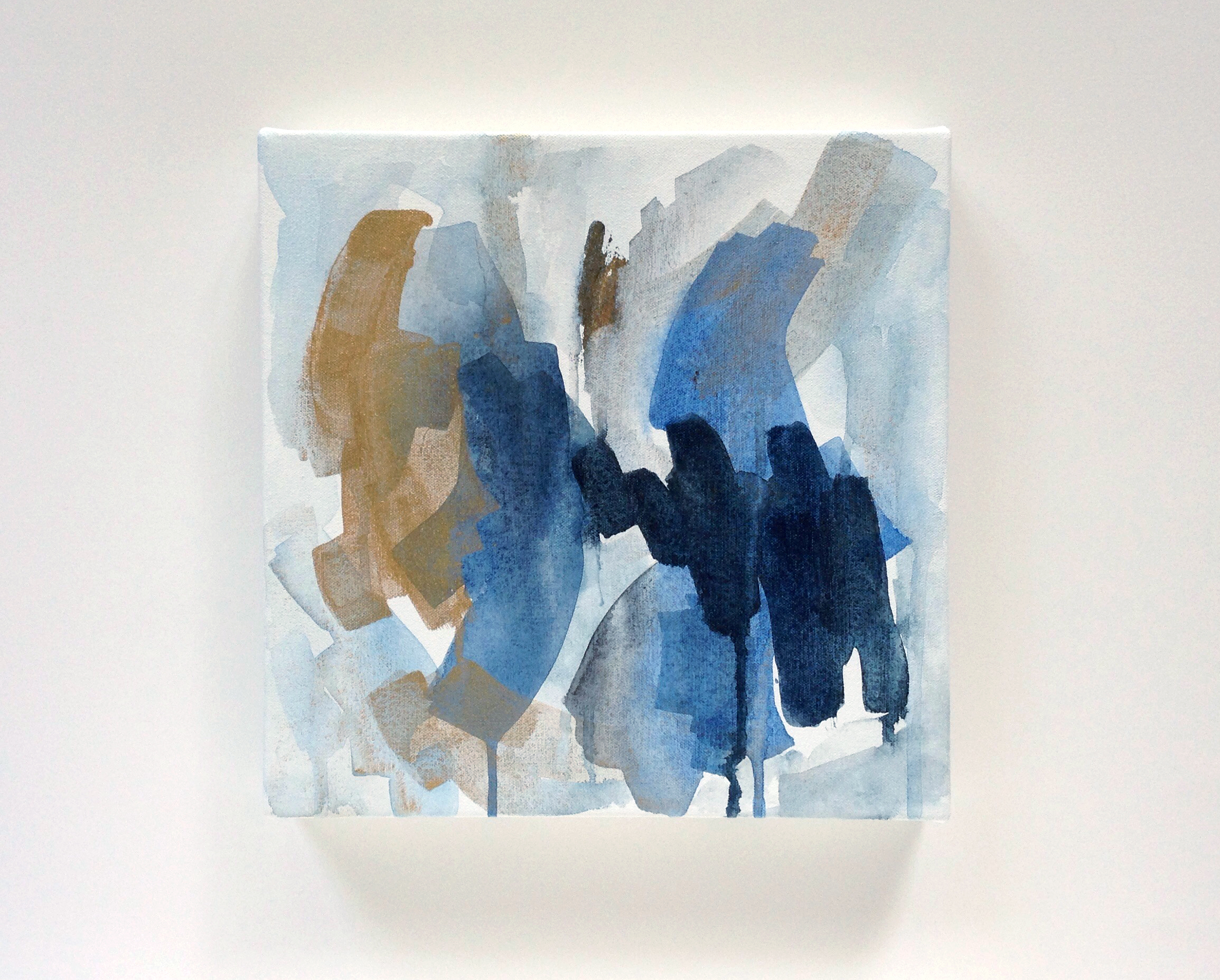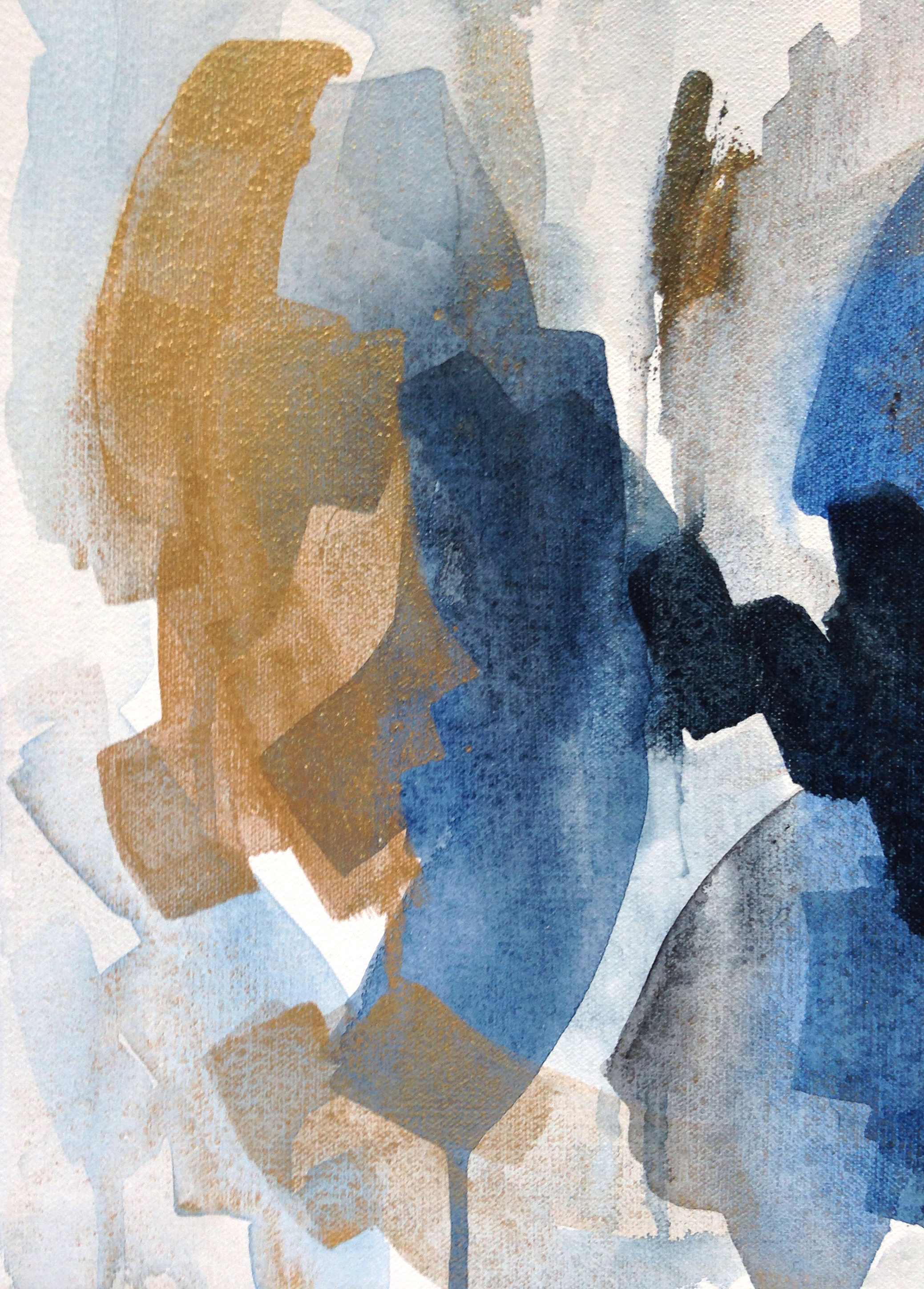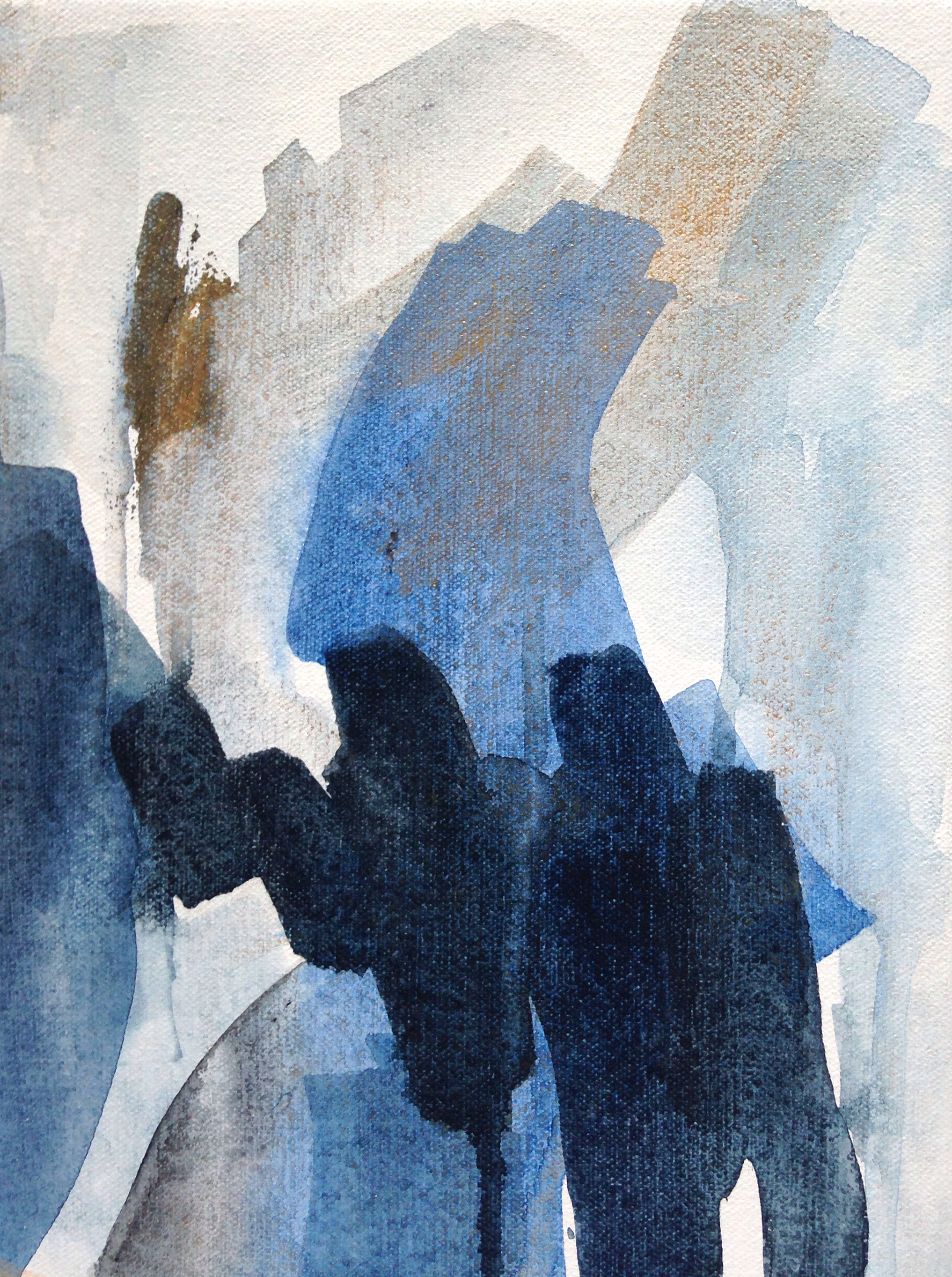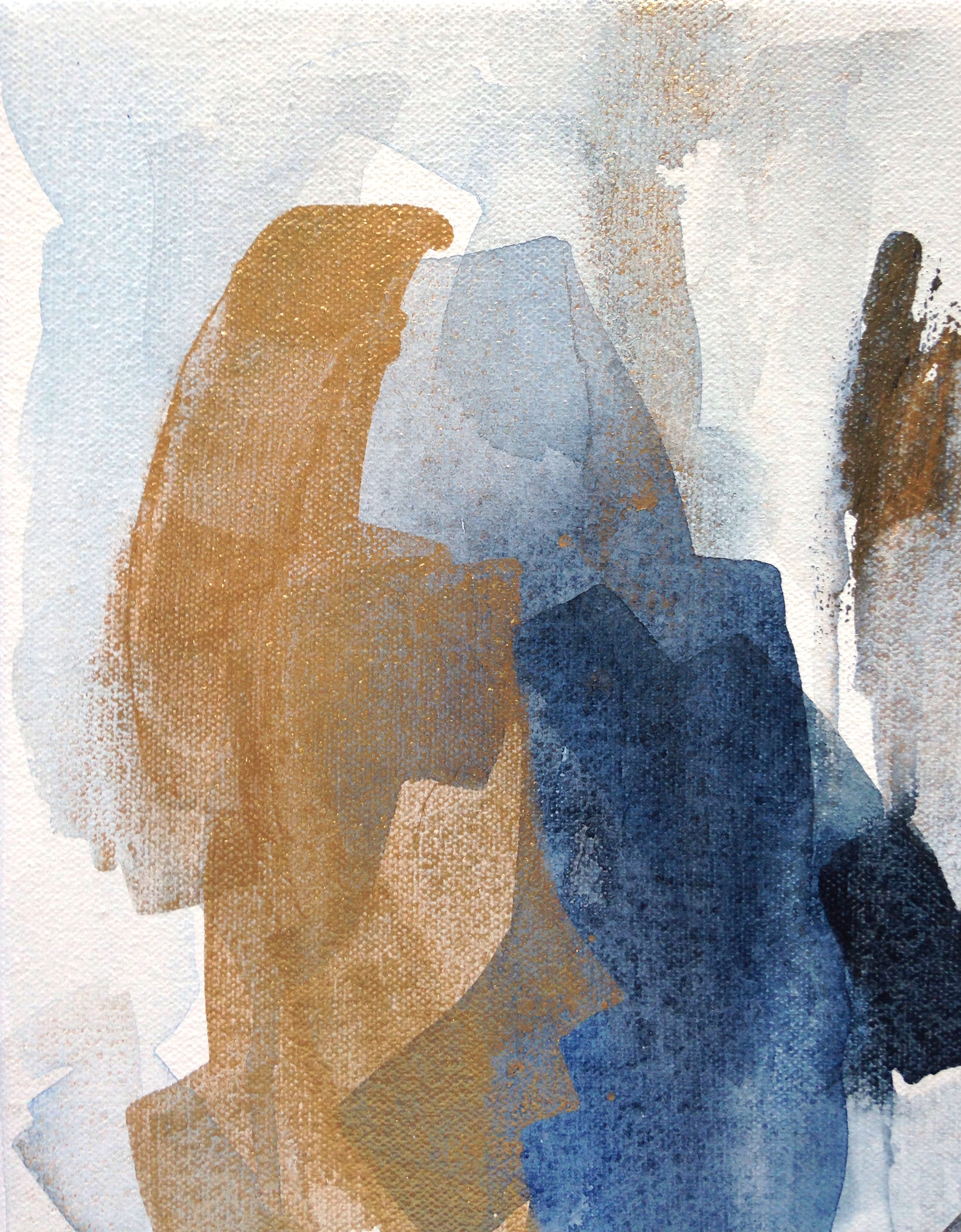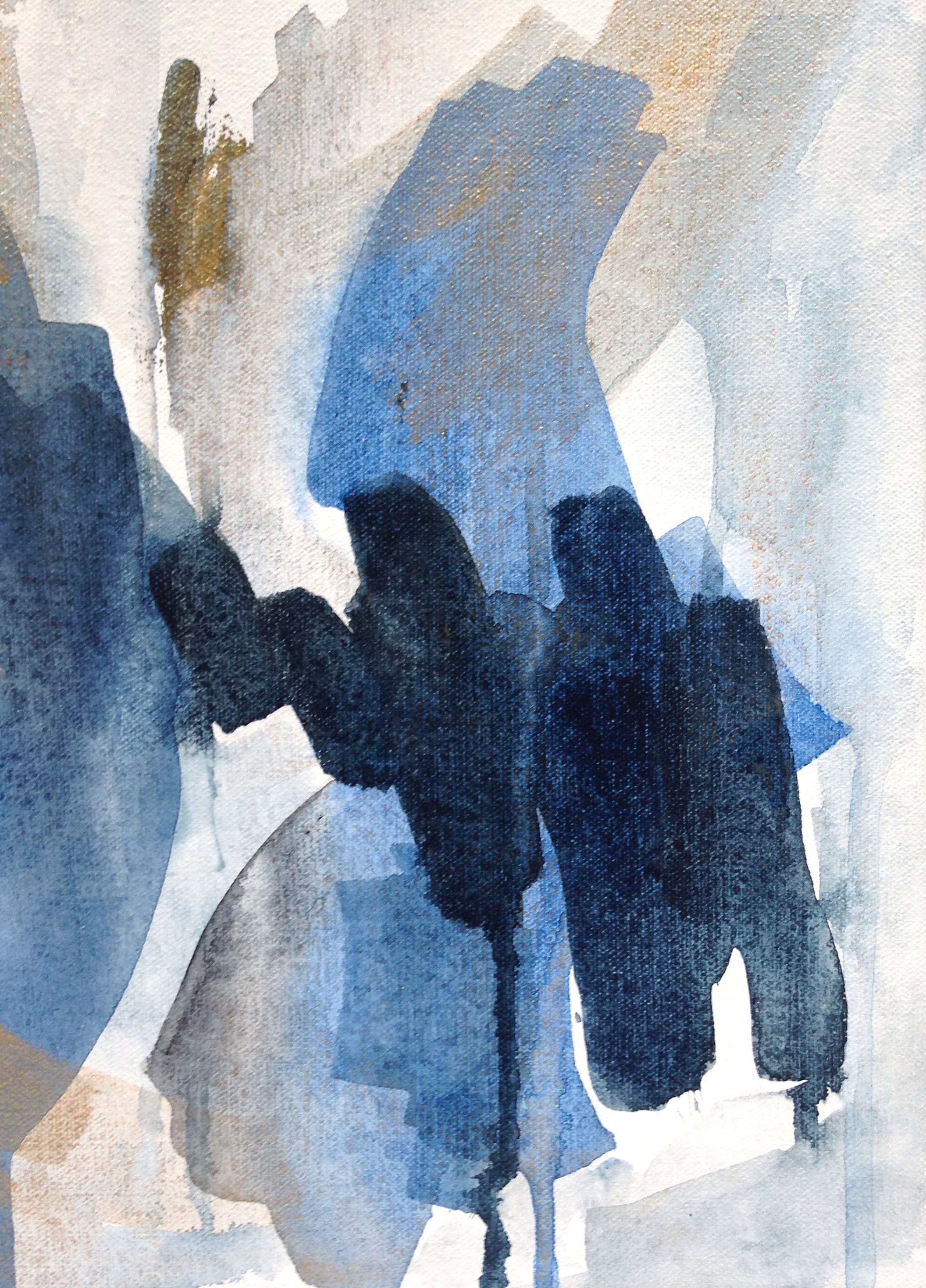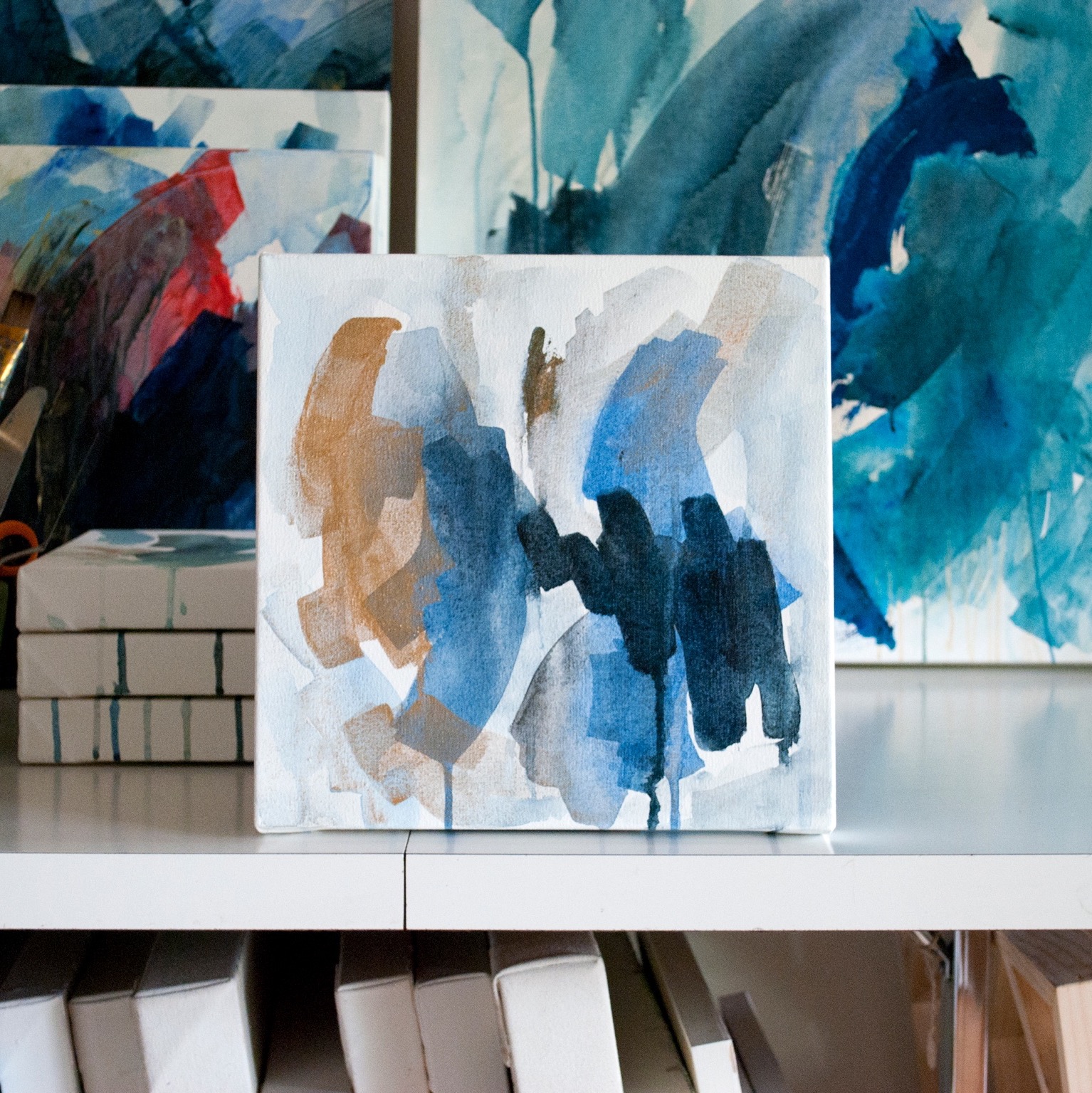The second series of paintings from May found their start in my readings of The Long Waters, one of the last poems of Theodore Roethke (for a brief introduction to Roethke see Part I). The works from Part I, based on his poem The Storm, are darker and more heavily layered (much like their poetic counterpart), whereas this series of works are lighter and more fluid in their layers.
Although all of my works this spring have benefitted from my movement studies project (a series of pared down, minimal studies on paper, focusing on my body’s motion, rhythm and repetition), this group of four works is a more visable extension of those studies.
This series of four made their debut in Chairish’s open studio on Instagram at the end of the month. Although they are no longer available, I'll be sharing a few similar pieces on my site soon. Roethke's poem, The Long Waters, follows at the end of the post.
Side note: So many thanks to the amazing, supportive folks over at Chairish for the opportunity to participate in their event. And most importantly, a huge thanks to the buyers of these (and other) pieces. For those of you who are new to my art, it is important for me to let you know that this work is also my occupation, and it is only with this support that I am able to continue doing what I do.
BECOME ANOTHER THING
12 x 12 x 1.5", acrylic on canvas, 2015 | sold
SO THE WIND
12 x 12 x 1.5", acrylic on canvas, 2015 | sold
MIDNIGHT FIELD
12 x 12 x 1.5", acrylic on canvas, 2015 | sold
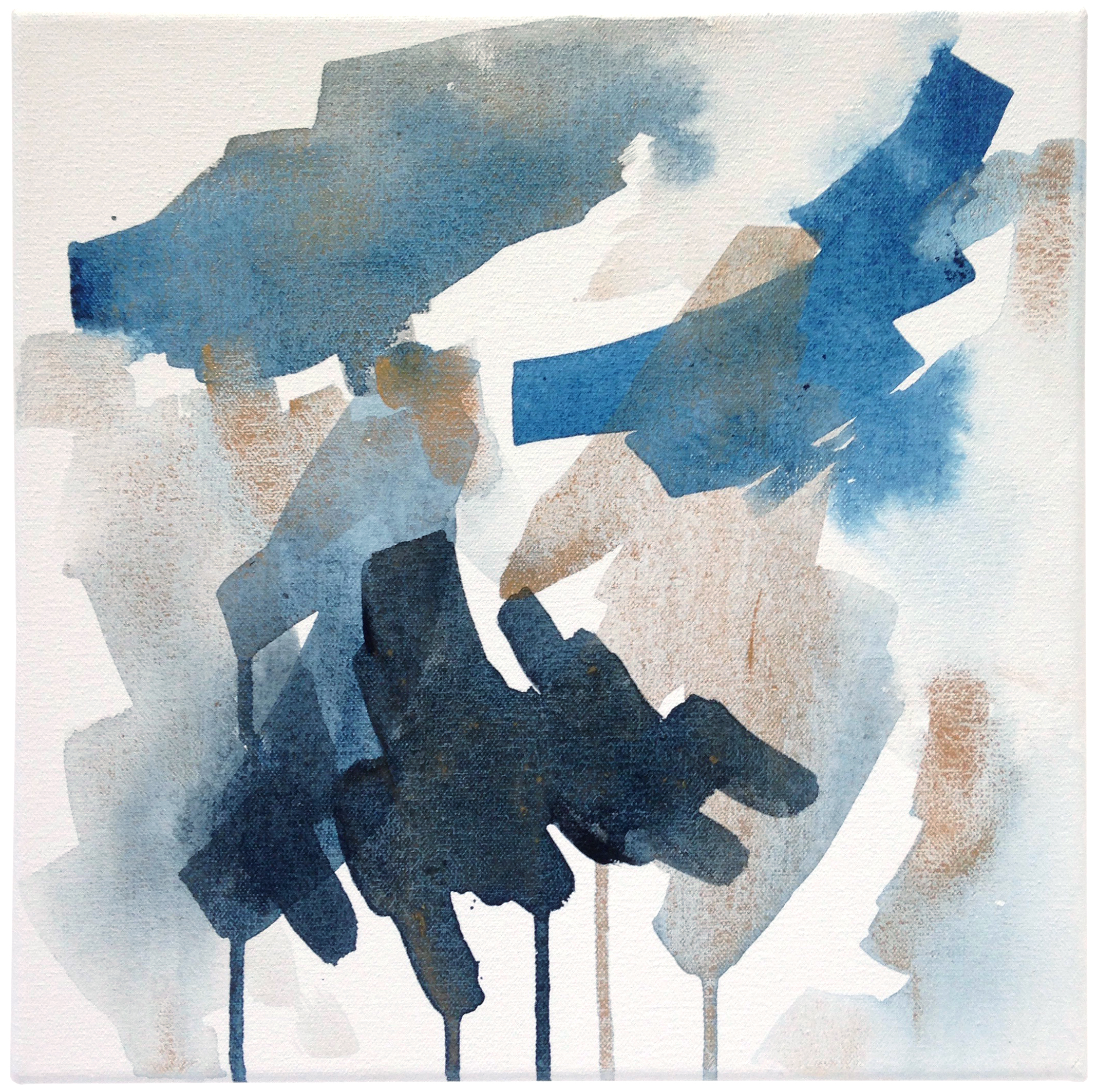
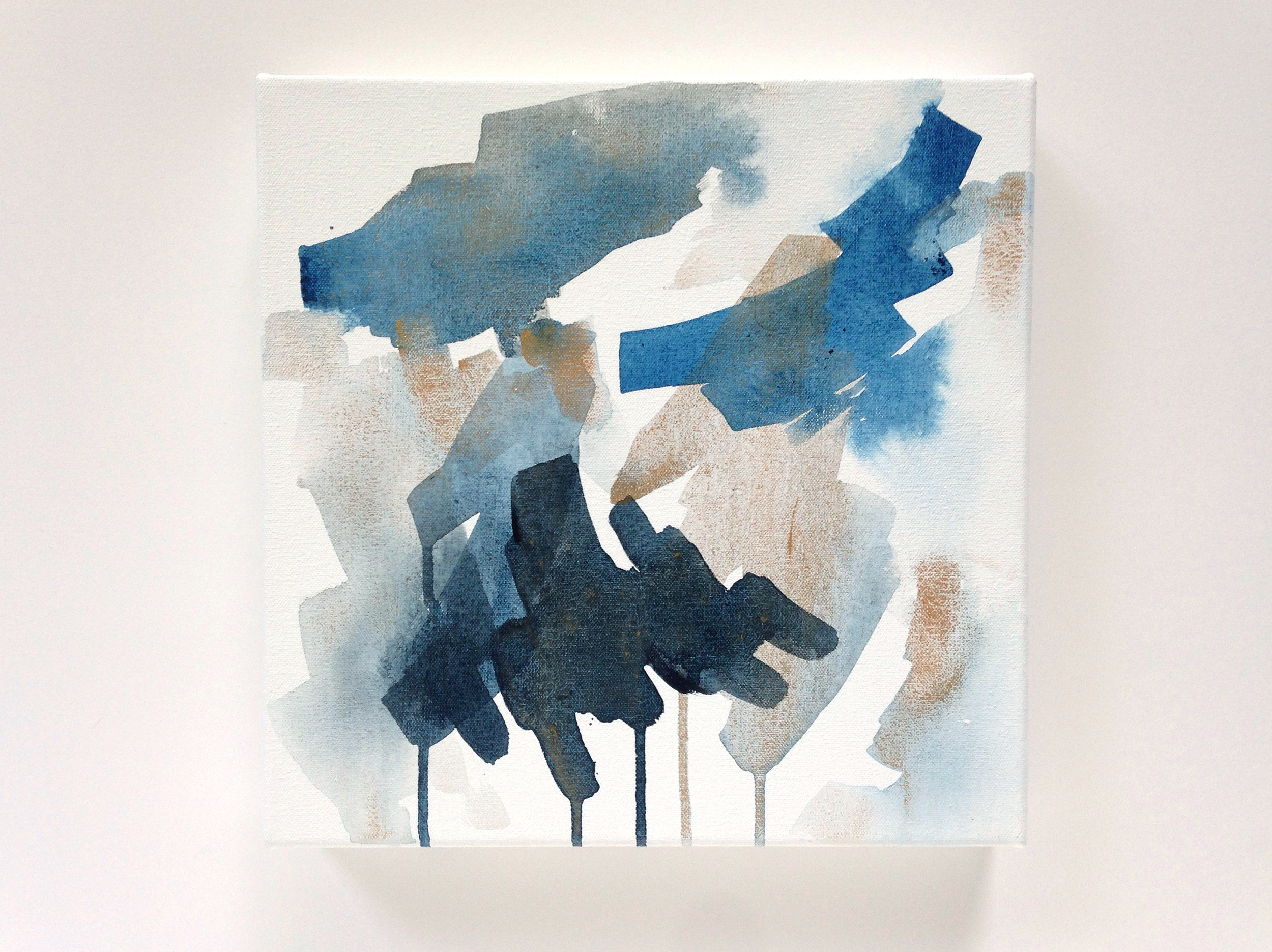
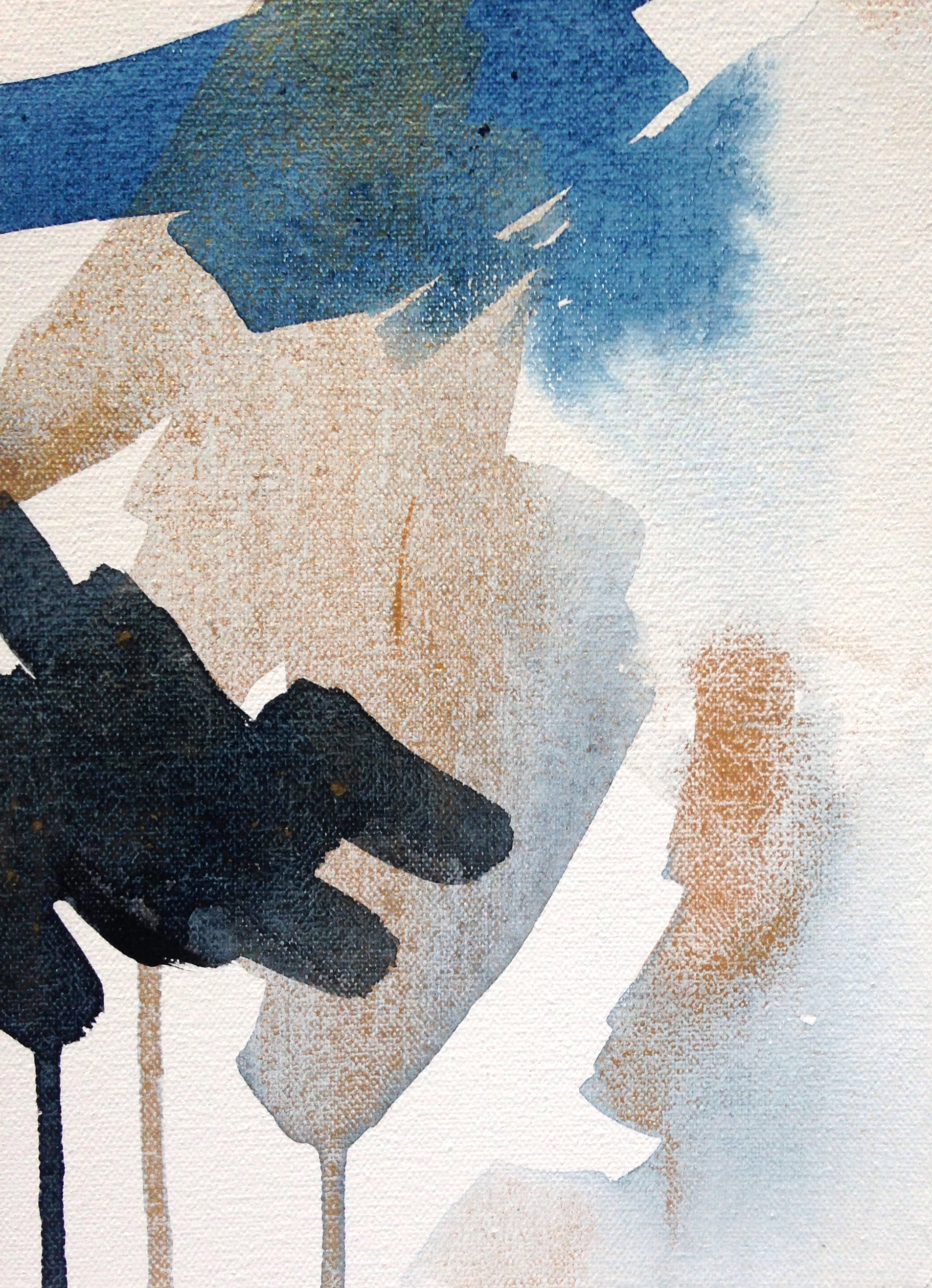



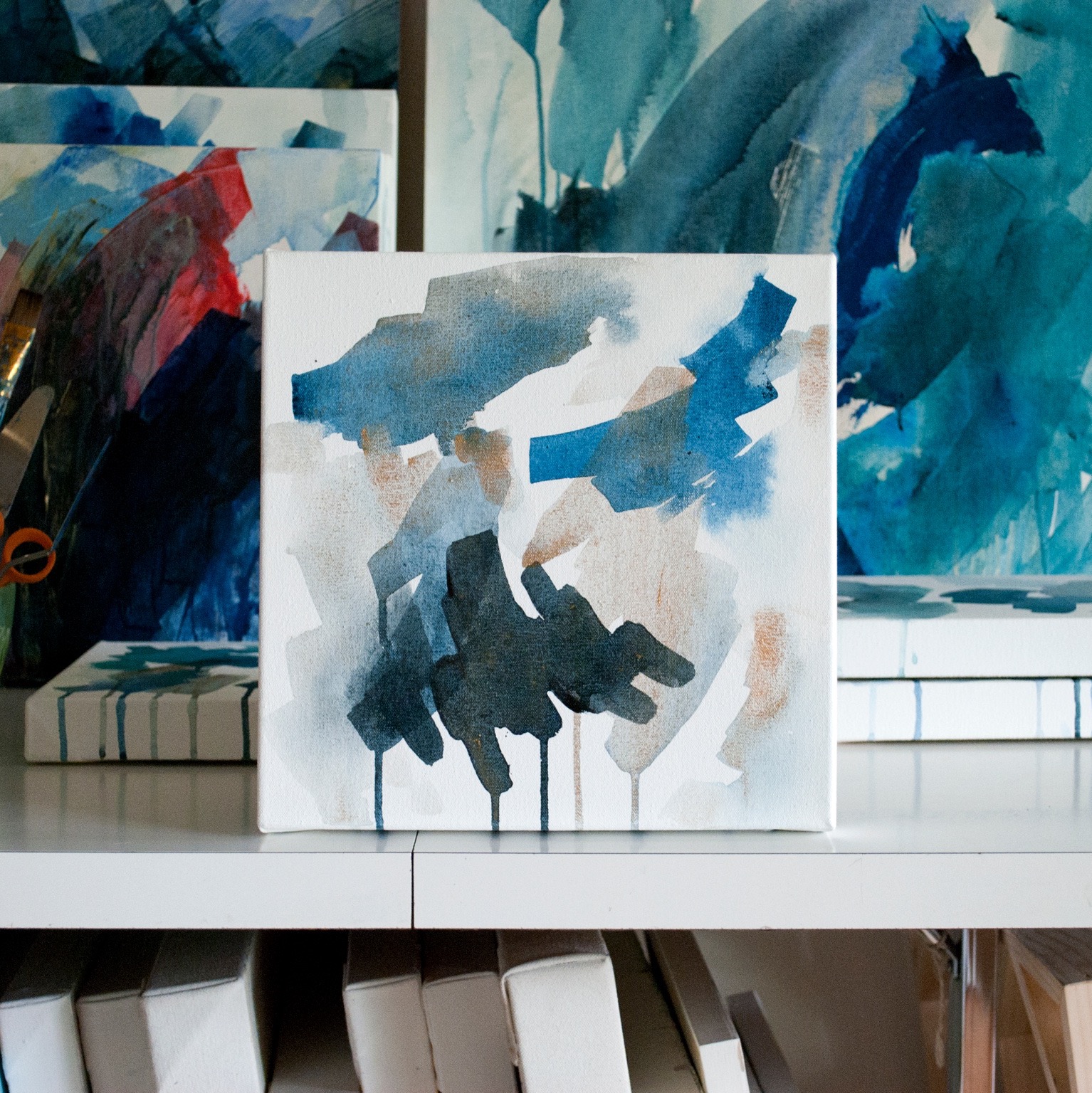
WHERE THE WATERS MEET
12 x 12 x 1.5", acrylic on canvas, 2015 | sold
THE LONG WATERS
Theodore Roethke, 1908 - 1963
I
Whether the bees have thoughts, we cannot say,
But the hind part of the worm wriggles the most,
Minnows can hear, and butterflies, yellow and blue,
Rejoice in the language of smells and dancing.
Therefore I reject the world of the dog
Though he hear a note higher than C
And the thrush stopped in the middle of his song.
And I acknowledge my foolishness with God,
My desire for the peaks, the black ravines, the rolling mists
Changing with every twist of wind,
The unsinging fields where no lungs breathe,
Where light is stone.
I return where fire has been,
To the charred edge of the sea
Where the yellowish prongs of grass poke through the blackened ash,
And the bunched logs peel in the afternoon sunlight,
Where the fresh and salt waters meet,
And the sea-winds move through the pine trees,
A country of bays and inlets, and small streams flowing seaward.
II
Mnetha, Mother of Har, protect me
From the worm's advance and retreat, from the butterfly's havoc,
From the slow sinking of the island peninsula, the coral efflorescence,
The dubious sea-change, the heaving sands, and my tentacled sea-cousins.
But what of her?—
Who magnifies the morning with her eyes,
That star winking beyond itself,
The cricket-voice deep in the midnight field,
The blue jay rasping from the stunted pine.
How slowly pleasure dies!--
The dry bloom splitting in the wrinkled vale,
The first snow of the year in the dark fir.
Feeling, I still delight in my last fall.
III
In the time when the trout and young salmon leap for the low-flying insects,
and the ivy-branch, cast to the ground, puts down roots into the sawdust,
And the pine, whole with its roots, sinks into the estuary,
Where it leans, tilted east, a perch for the osprey,
And a fisherman dawdles over a wooden bridge,
These waves, in the sun, remind me of flowers:
The lily's piercing white,
The mottled tiger, best in the corner of a damp place,
The heliotrope, veined like a fish, the persitent morning-glory,
And the bronze of a dead burdock at the edge of a prarie lake,
Down by the muck shrinking to the alkaline center.
I have come here without courting silence,
Blessed by the lips of a low wind,
To a rich desolation of wind and water,
To a landlocked bay, where the salt water is freshened
By small streams running down under fallen fir trees.
IV
In the vaporous grey of early morning,
Over the thin, feathery ripples breaking lightly against the irregular shoreline—
Feathers of the long swell, burnished, almost oily—
A single wave comes in like the neck of a great swan
Swimming slowly, its back ruffled by the light cross-winds,
To a tree lying flat, its crown half broken.
I remember a stone breaking the eddying current,
Neither white nor red, in the dead middle way,
Where impulse no longer dictates, nor the darkening shadow,
A vulnerable place,
Surrounded by sand, broken shells, the wreckage of water.
V
As light reflects from a lake, in late evening,
When bats fly, close to a slightly tilting brownish water,
And the low ripples run over a pebbly shoreline,
As a fire, seemingly long dead, flares up from a downdraft of air in a chimney,
Or a breeze moves over the knees from a low hill,
So the sea wind wakes desire.
My body shimmers with a light flame.
I see in the advancing and retreating waters
The shape that came from my sleep, weeping:
The eternal one, the child, the swaying vine branch,
The numinous ring around the opening flower,
The friend that runs before me on the windy headlands,
Neither voice nor vision.
I, who came back from the depths laughing too loudly,
Become another thing;
My eyes extend beyond the farthest bloom of the waves;
I lose and find myself in the long water;
I am gathered together once more;
I embrace the world.
- http://www.ndsu.nodak.edu/pubweb/~cinichol/CreativeWriting/423/Roethke.htm
